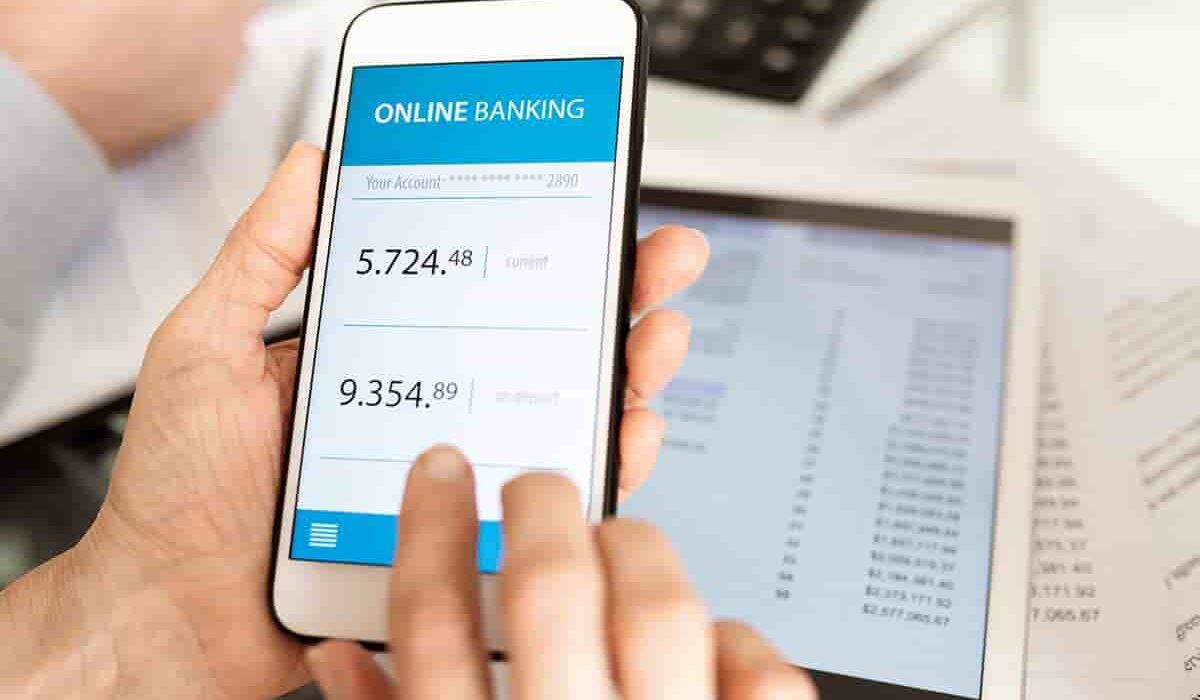The 10 Best Banks for Checking Accounts
Having a good back for your checking account is crucial to making sure that you’re financially secure. You’ll want a bank that is easy to deal with and has a high standard of customer service, as well as a bank that has plenty of options for mobile banking and loan management too.
Below you’ll find a list of the ten best banks for starting and maintaining a checking account. There are many different factors you’ll need to look into to get the most out of your banking relationship. Keep reading to find out which banks have the most to offer.
What Does "Free Checking" Mean?
When it comes to setting up a checking account, the banking term “free checking” typically means that the checking account doesn’t come with the kind of restrictions that other accounts may have. These types of restrictions include the following:
- Monthly maintenance fees: Many checking accounts that aren’t free checking accounts may have fees that range anywhere from five to twenty-five dollars a month, though five dollars is the common average fee for starter checking accounts.
- Balance requirements: Many checking accounts require the account to carry a minimum amount in order to avoid being penalized by the bank, but since free checking accounts are often used by those who are just getting started banking, the balance requirements for these accounts are usually little to nothing.
Free checking accounts also usually come with 24/7 access to a mobile banking app. What “free checking” doesn’t mean, unfortunately, is checking that costs nothing. Account owners will still be responsible for some costs. Here are a few of them:
- Overdraft fees: If you pull more money out of your account than you have in it, your account will go into overdraft. The bank may charge you a penalty fee each day until you add enough money back in your account to bring the amount to zero or higher.
- Cost of checks: Even though your checking account might be free, that doesn’t mean that you won’t still have to pay for other parts of your account such as your physical checks.
At the end of the day, any checking account that is advertised as “free checking” is going to be one of the cheaper checking accounts you can open. While they might not offer as many rewards or advantages as other kinds of checking accounts, they are one of the most easily accessible types when you’re first getting started
What's the Difference Between a Checking Account and a Savings Account?
Even though you can withdraw and deposit money from both a checking and a savings account, these accounts are designed for fundamentally different purposes. Here is a breakdown of a checking and a savings account, and the differences between the two (Source: Nerd Wallet):
- Checking account: A checking account is an account that is designed for you to take money out of on a regular basis as part of your disposable income. Checking accounts are easy to access your money in. These accounts can be used for paying bills and making daily purchases.
- Savings account: Savings accounts are meant for you to deposit money into for the long-term. To encourage you to do this, these accounts are typically set up with a higher interest rate so that you can earn extra money the more money you leave deposited in the account.
Many people elect to have both a savings account and a checking account, but be forewarned – you usually need a minimum amount of money to open a savings account, so check with your bank of choice to determine how much you’ll want to save up.
It’s also possible to keep multiple checking accounts, or to keep a checking account at two banks simultaneously. This can be convenient if you need to keep part of your income separate. It’s also an option if you want to pay all of your bills out of one account while you use the other as disposable income and savings.
What Are Checking Accounts Typically Used For?
Checking accounts serve several different roles when you use them for banking, not just as a general place for you to deposit and withdraw money. Here are some of the other functions that a checking account serves:
- Money monitoring: By using a mobile banking app, you can check your checking account at any time to see exactly how much money you have available and what withdrawals have been made.
- Debit card: Along with physical checks, a checking account in the 21st century is also usually connected to a debit card with a four-digit PIN code. This card can take the place of physical checks for daily purchases. It can also be used to withdraw money from an ATM machine.
- Financial protection: Opening a checking account allows you to keep your money safe, rather than hoarding it in your house and risking it getting stolen. Any money you store in the bank is insured by federal protections in case of a bank collapse or robbery as long as it is FDIC certified. (Source: Investopedia)
- Earn rewards: Some banks allow you to earn rewards for keeping a certain amount of money in your checking account or by making certain purchases with merchants that are affiliated with the bank.
Since you can get a free checking account with little personal investment without having to worry about any fees in many cases, having a checking account with a good bank is well worth the money to get set up.
Do I Need Personal Checks for My Checking Account?
While many purchases made in the 2020s are performed with a debit card or even just with account information through an online account, chances are you’ll still need to keep some personal checks on hand for certain financial transactions. Here are a few reasons why you might need to use personal checks even if you generally prefer a debit card:
- Rent/utilities: Many landlords and utility companies still don’t have electronic deposit for bills, and even those that do tend to charge heavy fees for the convenience of paying this way. Personal checks are preferred in many cases and help you maintain a paper trail in case you run into financial issues.
- Gifts: If you give someone money for a wedding or a graduation, it’s safer to give them a personal check made out to them than it is to give them cash. Cash can be easily lost or stolen, and a check helps the gift receiver remember who gave them the gift if the money becomes separated from the card.
- Power outages: If you’re shopping somewhere and the power goes out, all of the electronic cash registers will go down too. Many small or family-run businesses will still allow you to pay with a personal check in this scenario for customer convenience, especially for large purchases such as auto repairs.
You won’t be using your personal checks for many day-to-day purchases in most cases, but it’s still a good idea to always keep some on hand. If nothing else, they give you a handy way to look up your full bank account number in case you have to do financial business over the phone or the Internet.
The 10 Best Banks Offering Free Checking
If you’re going to open a checking account, you need to decide which bank you’re going to go with. Many people end up using the same banking institution for decades, so you’ll want to end up with one that you’re happy with. Transferring funds from one bank to another and closing a bank account can also be a hassle, so choose carefully.
1. Bank of America
Bank of America is a versatile option for banking since they have pretty much every banking product you could possibly need beyond a basic checking account. Another major advantage of using this bank is that it has tons of branches available, so you’ll always be able to find somewhere to get banking services if you need them.
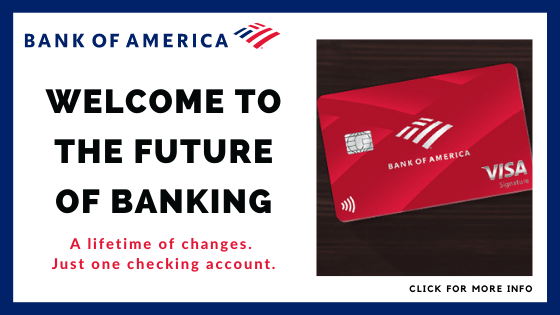
2. Chase
Chase is a good bank for checking accounts, but this bank is also known for offering a wide range of credit cards that can help you earn rewards and points depending on what type of account you open. Chase also allows for easy peer-to-peer transfers through its Chase QuickPay and Zelle online billing services.

3. Discover
If you’re trying to be as frugal as possible, the Discover Rewards checking account allows you to build up cash-back rewards based on your spending habits. The good thing about setting up a rewards-based checking account versus a rewards-based credit card is that the checking account doesn’t affect your credit score.
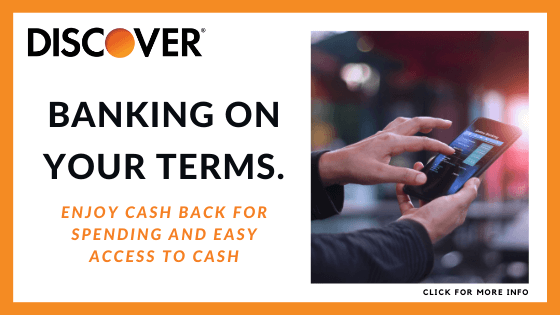
4. TD Bank
TD Bank offers no-fee convenience checking as long as you maintain a hundred dollar minimum balance, so it’s a solid option if you are trying to keep your monthly maintenance fees low. Checking accounts with TD bank also offer cash sign-up bonuses and long bank location hours so you’ll be able to access a banking professional when you need them.
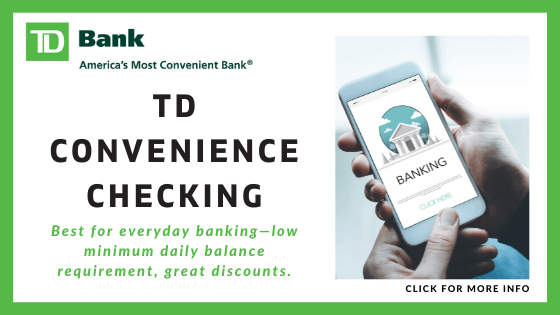
5. Regions Bank
Regions Bank is a great choice for people who are still getting the hang of solid money management. With their wide range of online money management tools, Regions makes it easier than ever to make a budget based on your checking account funds and track your spending. This bank also has a robust mobile banking app with an intuitive interface that’s easy to use.
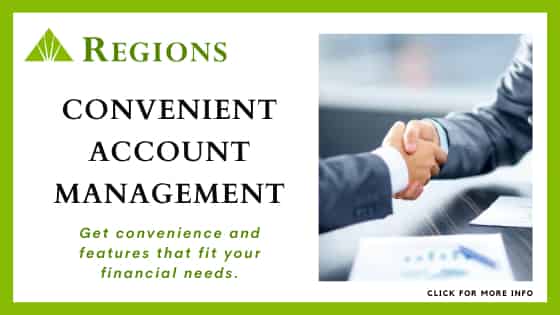
6. US Bank
US Bank is one of the longest-standing banks around, so if you want a checking account with a bank that has a solid reputation, this is a good one to go for. Among the benefits of US Bank are a variety of CD types for savings deposits and a wide selection of different deposit accounts to help you customize your banking experience.
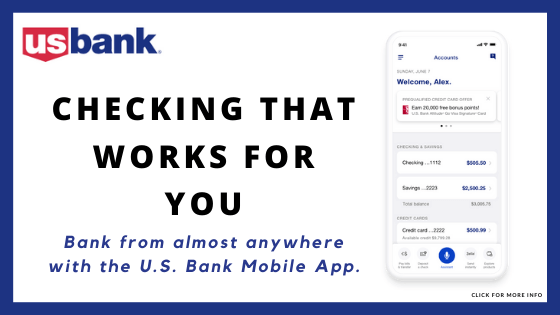
7. Axos Bank
Axos is a unique option among the banks on this list since it is an online-only bank. Even so, this bank has been around for over twenty years and offers the same full banking services as other banks with brick-and-mortar locations. Since Axos doesn’t have its own ATM network, an account with this bank will also offer reimbursements for any ATM fees you might incur.

8. Capital One
With competitive interest rates on savings accounts and no monthly maintenance fees on checking accounts, Capital One is perfect for people who want to earn money at the bank, but don’t want to spend money to keep it there. This bank also has no minimum balance for those who are trying to start a checking account with a very small amount.
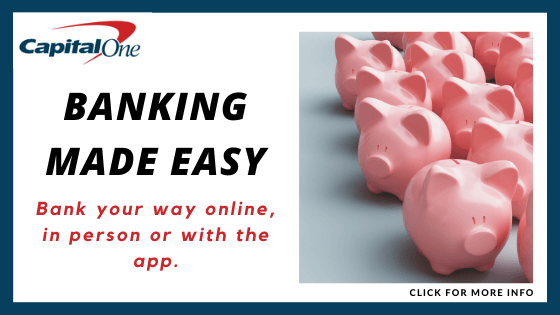
9. Ally Bank
If you want an online bank that has been around the longest and has a good reputation for solid customer service, you can look no further than Ally. This online bank is one of the largest in the world and with good reason – low fees and high interest rates make accounts with this bank profitable. Ally also has many savings tools and features that can help you build funds.
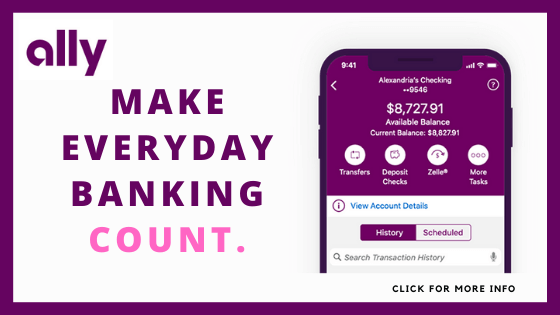
10. Alliant
If Alliant isn’t a familiar banking name to you, it’s probably because this online-only credit union is still fairly new on the scene. However, for those who are looking for an online-only banking experience, this bank has plenty to offer. Advantages include overdraft forgiveness and refunds for ATM fees.

Checking Accounts Are Vital for Financial Security
Even if you might be tempted to keep your money in liquid cash at home, this can be dangerous in case of an emergency such as a fire or robbery. Opening up a checking account instead with a reputable bank can help you keep your money safe. It’s also a good chance to get access to tools that will help your money grow, too.


